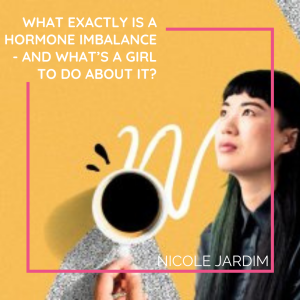
From the time we’re born, our hormones dictate our appetite, sleep patterns, how we respond to stress, our libido, whether we’re happy or anxious, and everything in between. Here’s what happens when they’re out of whack.
The term “hormone imbalance” is thrown around a lot by health professionals these days.
But what does it actually mean? It sounds so generic and all-encompassing that most women are overwhelmed by the prospect of even trying to understand this first piece of the puzzle.
How do we even know which hormones are imbalanced, much less what symptoms we should be looking for to figure out if our hormones are out of whack?
When most women under 40 hear the word “hormones,” it conjures up images of menopause, hot flashes, and mood swings.
The thing is, from the time we’re born (long before menopause), our hormones are dictating a plethora of bodily functions, like our appetite, sleep patterns, how we respond to stress, our libido, whether we’re happy or anxious, and everything in between.
This is why it’s so important for women of every age to have a basic grasp of how their hormones work. Otherwise, we’re simply feeling around in the dark for decades, trying to piece together an understanding of what the heck is going on in our bodies.
The hormones that usually become imbalanced first are cortisol and insulin — “stress” and “blood sugar” hormones, respectively.
I call these the “alpha hormones” because they have a downstream effect on our thyroid, ovarian, and sleep hormones. As in, they disrupt how thyroid hormones, estrogen, progesterone, testosterone, and melatonin work in the body.
OK, but what does this mean in terms of symptoms? Check out the article I wrote for Healthline HERE for a list of some of the first signs of a hormone imbalance and what to do about them.



